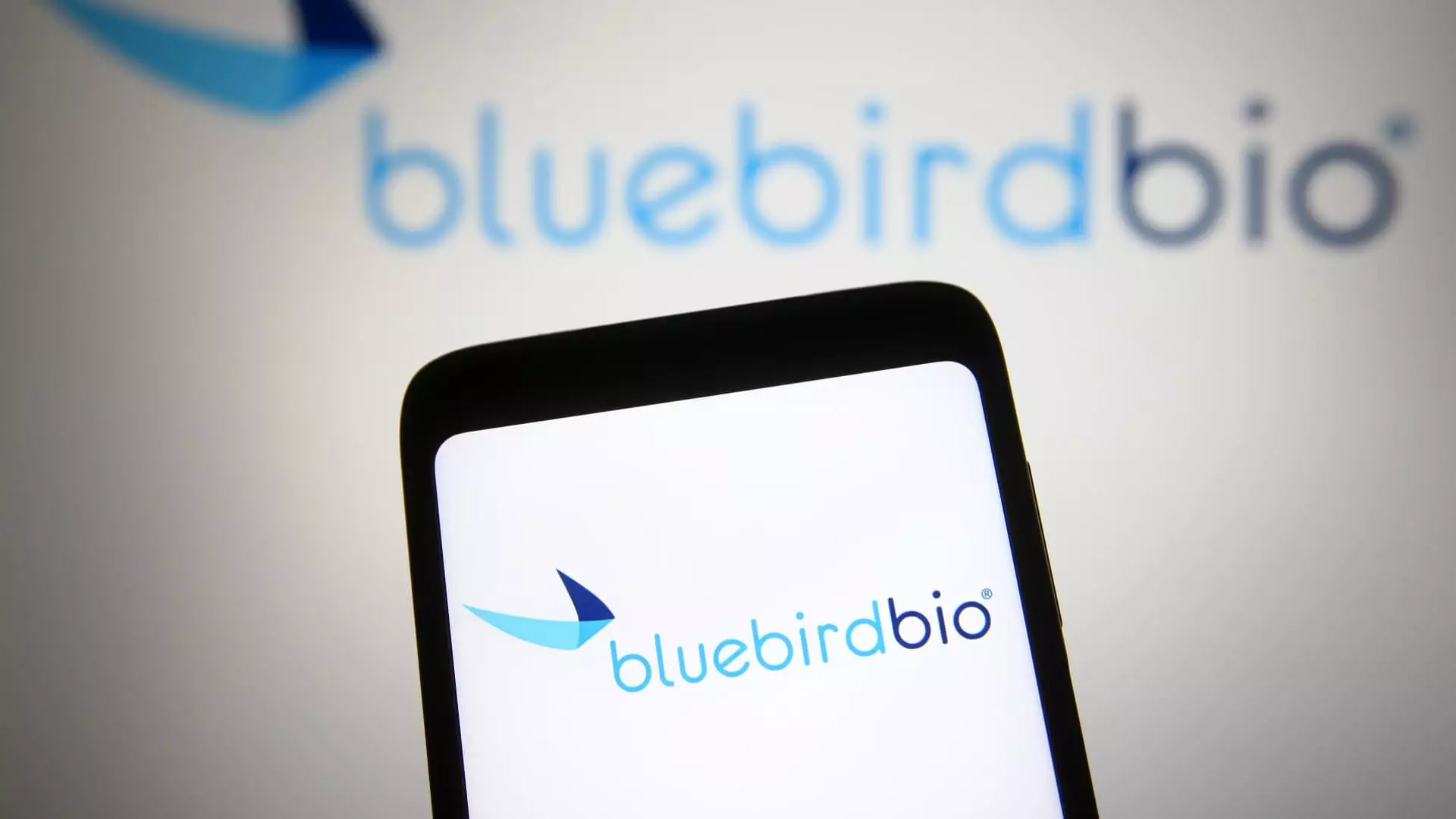Bluebird Bio, once a beacon of hope in the biotech industry with its innovative gene therapies, has succumbed to the harsh realities of the market. Selling itself to private equity firms Carlyle and SK Capital for approximately $30 million, Bluebird’s trajectory serves as a cautionary tale about the volatility and unpredictability that pervades the biopharmaceutical landscape. While the firm once had lofty ambitions and a substantial market cap, today it finds itself grappling with significant financial hurdles and a tarnished reputation.
Founded over three decades ago, Bluebird Bio gained recognition for its pioneering work in gene therapies aimed at curing genetic diseases. At its zenith, the company boasted a market capitalization of nearly $9 billion, buoyed by a wave of investor enthusiasm surrounding its potential to deliver life-altering treatments. However, this optimism waned significantly over recent years, particularly following a string of unfortunate events that led to mounting skepticism about its capabilities and the safety of its therapies.
The turning point came in 2018, when a patient undergoing Bluebird’s gene therapy for sickle cell disease reportedly developed cancer. While the company maintained that its treatment did not cause the malignant condition, this incident ignited a flurry of concerns regarding the long-term safety of DNA-altering therapies. Questions about patient safety loomed large, doing considerable damage to Bluebird’s credibility and prompting investors to pull back amidst fears of potential liabilities and regulatory challenges.
Compounding Bluebird’s challenges were its pricing decisions and subsequent market responses, particularly in Europe. The company faced backlash for its multimillion-dollar gene therapy for beta thalassemia, Zynteglo, which was priced at an astonishing $1.8 million per patient. The outrage led Bluebird to retract Zynteglo from the European market just two years after its approval, a decision that not only unraveled its early success but also underscored the difficulties biotech firms face when attempting to balance innovation with commercial viability.
As Bluebird attempted to pivot its focus towards the U.S. market, it initiated a series of launches for its gene therapies—Zynteglo, Lyfgenia for sickle cell disease, and Skysona for cerebral adrenoleukodystrophy. Despite regulatory approvals in recent years, these therapies failed to generate the revenue necessary to stabilize the company’s financial footing. Spending hundreds of millions of dollars annually without a straightforward path to profitability strained Bluebird’s resources, eventually necessitating painful decisions like spinning off its cancer treatments into the separate entity, 2Seventy Bio.
The forthcoming sale to Carlyle and SK Capital marks a stark departure from Bluebird’s original mission—a transition from a pioneering firm to a struggling entity barely afloat. The upfront sale price of $30 million highlights just how far the company has fallen; it stands in sharp contrast to the $80 million earned by former CEO Nick Leschly during his tenure through stock sales. Such a disparity raises troubling questions not just about Bluebird’s management decisions, but also about the sustainability of the entire biotech sector.
Despite the company’s relentless efforts and the transformative potential of its therapies, Bluebird Bio’s story is emblematic of a broader crisis within the industry concerning how to monetize groundbreaking treatments for rare diseases. Promising advancements, such as Vertex’s Casgevy and Pfizer’s recently abandoned therapy for hemophilia, illustrate that even the most innovative concepts can struggle in a complex and ever-evolving market landscape.
While Bluebird Bio’s gene therapies hold the potential to change lives—an aspiration echoed by patients yearning for solutions—they have not been enough to secure the company’s legacy in an increasingly unforgiving business environment. As the firm transitions into new ownership, its story serves as a vital reminder of the perils that biotech companies must navigate in their quest to turn scientific dreams into viable realities.

